We have witnessed one year of the latest round of oppression and injustice by the Israelis against the Palestinians. Over 62,000 people, many of whom are children and women, have been massacred (as at 7 April 2025). At such a juncture, when we might be experiencing feelings of despair and anguish, we need to reaffirm our hope in Allah Ta’ala.
At the Battle of Uhud, when the Muslims had lost 70 men including the Hamza radhiallahu anhu, the beloved uncle of the Prophet sallallahu alaihi wa sallam, they were consoled with these words, “If you are suffering, they are suffering as you are suffering, while you hope from Allah what they do not hope.” (Noble Quran, 4:104) Both sides are going through pain, but the difference between Imaan (faith) and disbelief is that a Muslim has a positive spirit and hope in Allah Ta’ala which the disbeliever lacks.
Prophet Yaqoob alaihis salaam has not seen his son Yusuf alaihis salaam for many years nor is there any hint of where he might be found. He is feeling sadness at his separation. Yet he exudes hope and positivity, “O my sons, go and search for Yusuf and his brother, and do not lose hope in the mercy of Allah. In fact, only the disbelievers lose hope in Allah’s mercy.” (Noble Quran, 12:87) It is a distinguishing feature of a Muslim that he never loses hope no matter what the situation might be. You might be going through a critical illness, you lost your job, your debts are piling up, you are apprehensive about upcoming exams, you are looking to get married, or your marriage might be on the rocks. In all situations we need to remember that we are the slaves of Allah Ta’ala. He is in control of all the details and aspects of our lives. Suicide is not an option for a Muslim. In the last 45 years, suicide rates have increased by 65% worldwide with more than 1 million people taking their lives annually. A Muslim knows that this is not a solution, no matter what the challenge is.
In the story of Yusuf alaihis salaam we learn lessons on being hopeful amidst the most trying times, and what our approach should be:
- No matter how hopeless the situation might seem, our faith compels us to he hopeful and positive. Things might seem bleak with no light at the end of the tunnel, yet a Muslim never loses hope.
- Looking forward to good news in desperate situations does not necessarily mean that we won’t feel the natural human emotions. Yaqoob alaihis salaam is full of positivity yet he has feelings of sadness. It is not a sign of weakness to fell these emotions of sadness, anxiety and so forth. These emotions should not incapacitate us. We need to continue to live productive lives through it all.
- Having hope does not mean that we sit idle and make no effort to find a solution. Yaqoob alaihis salaam sends his sons to search for Yusuf alaihis salaam or any news about him. Looking for a job? Send in your CV and hunt for career opportunities. If you are sick, seek medical help. Having positive thoughts does not affect making an effort.
- People of faith who have this hope and positivity inspire others with that hope. A critic only complains.
The Palestinians are showing us this lesson practically. They have undergone generations of suffering, yet you only see them being stronger in faith. They live by this slogan, “You cannot defeat a people that know death is not an end.” This ideology is playing a major role in giving the people of Gaza and Palestine resilience. This is in turn inspiring even non-Muslims:
- A US activist wrote, “In the midst of the most horrible things I’ve ever seen in my life (being perpetrated by the Israelis against the Palestinians), you (Palestinians) have inspired me. I haven’t given a thought to being Muslim since my teenage years, but your faith has touched my soul. I’ve seen fathers holding the human scraps of their family in their hands saying they still believe in Allah Ta’ala. How is this possible?”
- Another person commented, “Been anti religion my whole 40 years, but seeing the beauty and strength in the belief (of the Palestinians) has opened my mind up to Muslim beliefs. It’s beautiful. It’s a strength I will never know, and it’s inspiring to the greatest degree.”
- Someone else said, “I was raised a Catholic then became an atheist. Now I’m going to buy a Quran and read every word (because of the faith of the Palestinians).”
- We are seeing amazing and awe-inspiring faith and positivity in the Palestinians. A teenager is shot in the neck yet insists on reading his Maghrib Salaah before the medics even treat him.
If this hasn’t taught us how to have hope in Allah Ta’ala, then we are missing something in our belief. We go through an extended period of loadshedding, and we get agitated and upset. The Irish UN Peacekeeping Battalion in Lebanon of just 300 soldiers along with the other UN troops have refused to leave their positions in defiance of Israeli orders and attacks on them. Thousands of people in the UK and USA are marching weekly for the Palestinian cause. Despite the Israeli pressure on them, European politicians have been speaking out. A Polish MP called Israel a terrorist state, while a Slovenian EU MP labelled them an extremist state. The UN Rapporteur has been publicly vocal about Israeli war crimes. The faith of the Palestinians is awe-inspiring and infectious.
Optimism and having hope for a Muslim comes in all facets of life:
- Being hopeful of getting rewarded for our good deeds. The Hadith tells us, “Whoever fasts the month of Ramadaan with faith and hoping for reward, his previous sins will be forgiven.” (Bukhari) “Surely those who recite Allah’s Book and have established Salaah and have spent, secretly and openly, from what We have provided to them – they hope for a trade that will never fail.” (Noble Quran, 35:29) We need to do good deeds with the hope that we will be rewarded for them.
- Having hope for the mercy of Allah Ta’ala when going through pain. “Indeed, those who believed and those who migrated and struggled in Allah’s Path hope for Allah’s Mercy. And Allah is Forgiving, Merciful.” (Noble Quran, 2:218) “No fatigue, nor disease, nor sorrow, nor sadness, nor hurt, nor distress befalls a Muslim, even if it were the prick he receives from a thorn, except that Allah wipes out his sins for that.” (Bukhari)
- Having a yearning and hope to meet Allah Ta’ala. The Prophet sallallahu alaihi wa sallam said, “Whoever loves to meet Allah, Allah loves to meet him, and whoever hates to meet Allah, Allah hates to meet him.” It was said to him: “O Messenger of Allah sallallahu alaihi wa sallam, does hating to meet Allah mean hating to meet death? For all of us hate death.” He replied, “No. Rather that is only at the moment of death when he is given the glad tidings of the mercy and forgiveness of Allah, he loves to meet Allah and Allah loves to meet him; and if he is given the tidings of the punishment of Allah, he hates to meet Allah and Allah hates to meet him.” (Ibn Majah) “Whoever hopes to meet Allah (must be sure that) Allah’s appointed time has to come.” (Noble Quran, 29:5)
- Hope for forgiveness. A youngster was dying. The Prophet sallallahu alaihi wa sallam went to meet him and asked, “How are you?” The boy replied, “O Messenger of Allah sallallahu alaihi wa sallam, I swear by Allah that I have hope in Allah and I am scared over my sins.” The Prophet sallallahu alaihi wa sallam said, “These two (qualities) do not gather in a slave’s heart at such a moment except that Allah gives him what he hopes for and protects him from what he is scared of.” (Tirmidhi) Muslim balances hope and fear, for hope alone without fear will amount to arrogance. Ibn al Jawzi rahimahullah writes that life is a battlefield and a constant warzone. The devils shoot arrows of desire and strike at people with the swords of sinful pleasures. Those who succumb drop dead. Others get wounds of committing sins and treat them with repentance. (Sayd al Khatir) Once you repent over your sins, have optimism in being forgiven.
- Hope for Paradise. Muslims need to have optimism that they will enter Paradise. Paradise is prepared for those who believe and have hope in meeting Allah Ta’ala. It is a destination for those who work for it and have hope in attaining that prize. The Noble Quran describes the believers as saying, “Our Lord, We heard a caller calling towards Faith: saying ‘Believe in your Lord.’ So we believed. Our Lord, forgive us our sins, and write off our evil deeds, and make us die only when we have joined the righteous.” (Noble Quran, 3:193) These believers display hope and optimism in receiving their reward and Paradise, saying, “Our Lord, and grant us what You promised us through Your messengers and do not disgrace us on the Day of Resurrection. Indeed, You do not fail in Your promise.” (Noble Quran, 3:194)
- Being hopeful that Duas are answered. The Hadith encourages us, “Make Dua to Allah with certainty that He will answer you.” (Tirmidhi) The Hadith teaches us to be determined, ambitious and confident while making Dua.
- Having hope for material things. “And if you must turn away from them (needy relatives) while awaiting a bounty from your Lord which you expect (if you have not the means to give them at present), then speak to them a gentle word.” (Noble Quran, 17:28) If you do not have money to assist relatives and family in need, keep the hope that you will receive these material bounties from Allah Ta’ala. In the meantime, give them positive, polite words of hope. If you are looking for a pay raise, a job, a promotion, a better life, or a military victory for the Palestinians over their tormentors, then be hopeful in receiving them.
There’s an interesting academic discussion among the scholars about which verse of the Noble Quran projects the most hope. The pious have chosen different verses, but the one that more commonly choose is, “Say, “O My servants who have transgressed against themselves (by sinning), do not despair of the mercy of Allah. Indeed, Allah forgives all sins. Indeed, He is the One who is the Most-Forgiving, the Very-Merciful.” (Noble Quran, 39:53)
The Prophet sallallahu alaihi wa sallam taught us a Dua to make that exudes hope and optimism. A man came to the Prophet sallallahu alaihi wa sallam and complained about his many sins. He was told to recite,
اللَّهُمَّ مَغْفِرَتَكَ أَوْسَعُ مِنْ ذُنُوبِي وَرَحْمَتَكَ أَرْجَى عِنْدِي مِنْ عَمَلِي
Transliteration: Allahumma maghfirataka awsaoo min zunoobee wa rahmataka arjaa indee min amalee
Translation: Oh Allah, Your forgiveness is far wider than my sins, and Your mercy holds more hope for me than my actions.
He was made to recite this thrice, and was then told, “Stand, for Allah Ta’ala has certainly forgiven you.” (Mustadrak)
A Muslim keeps hope alive in all situations. His faith and belief demand this of him. As Muhammad Al Sunusi describes it, “Life is filled with obstacles and challenges; this is its nature. Expecting life to be entirely free of hardships is unrealistic. As the poet says:
Life is filled with adversity, while you seek it pure of troubles.
Expecting the impossible is like seeking fire from water.
If you build hope on the edge of impossibility, you only build on a crumbling foundation.
The Noble Quran reminds us of this reality, “Indeed, We created man in hardship” (90:4), and “He who created death and life to test you as to which of you is best in deed.” (67:2)
Since life is inherently filled with trials, we cannot change its nature. However, we can change how we understand and approach it. A major part of this is adopting hope rooted in faith in Allah Ta’ala and trusting in His mercy and wisdom.
Hope breathes life into our existence. With hope, we become aware of our potential, trust in the blessings that Allah Ta’ala has granted us and look for the light that dawns even amid the darkest nights. Life without hope is like a body without a soul.

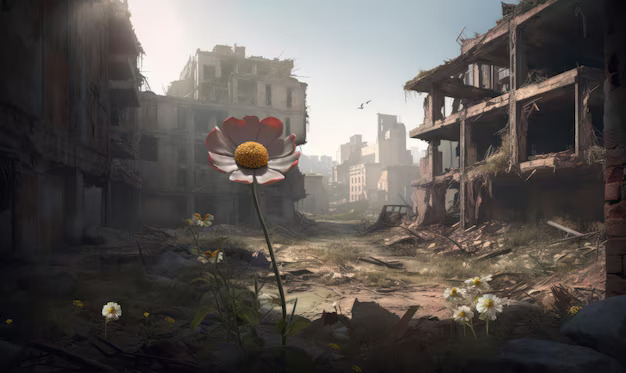
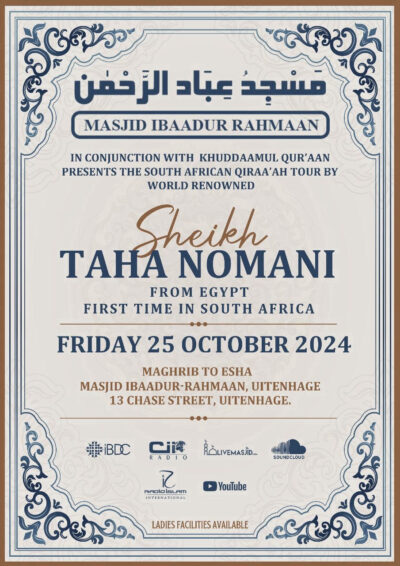
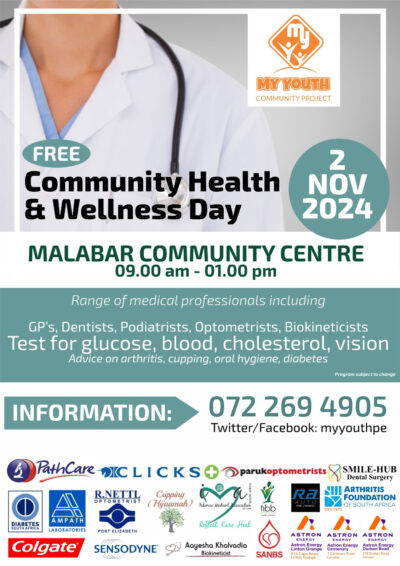


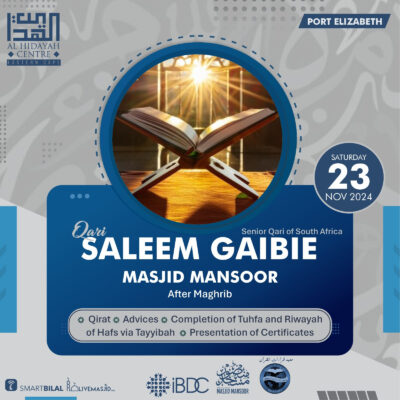
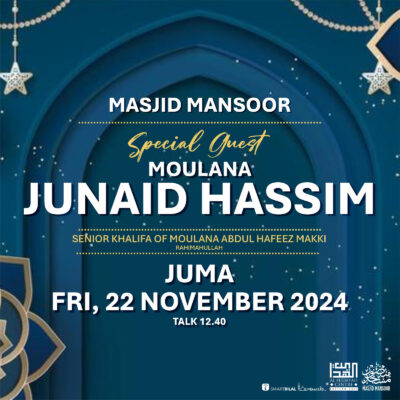
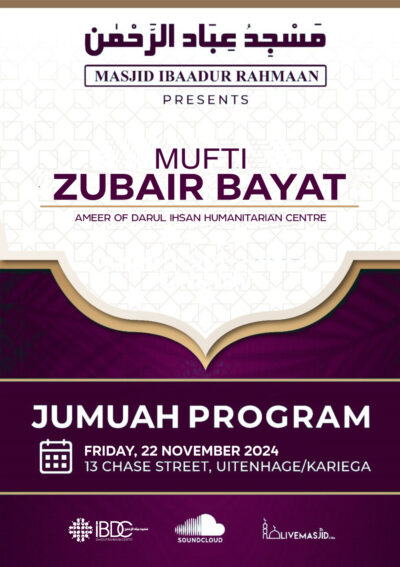
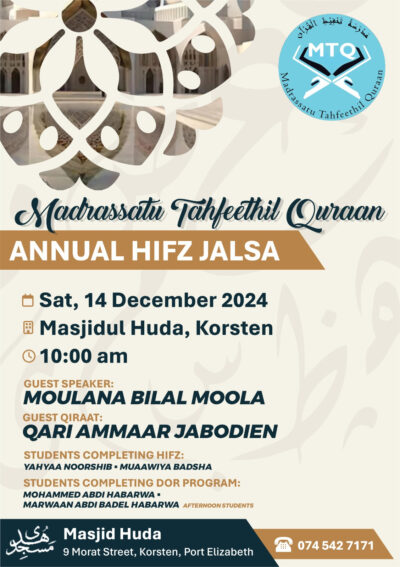



COMMENTS